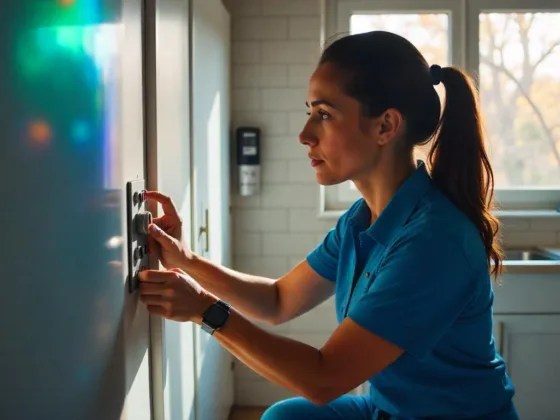Table of Contents Show
A real estate school can be an excellent choice for anyone interested in becoming a real estate agent. It’s also the perfect opportunity to take your career in real estate to the next level. By choosing an online real estate school, you can achieve your career goals while balancing everyday life. But, with so many different programs, how do you know which one is right for you?

This blog post will share insider tips on choosing the best online real estate school. You’ll learn about common considerations when picking a program and insights into each type of school and what they offer prospective students. Let’s get started!
What To Look for In an Online Real Estate School
There are numerous factors to consider when choosing an online real estate school.
First, you’ll want to decide if you want to pursue an online or in-person program. Both offer advantages and disadvantages, so it’s essential to understand the differences and find what fits best with your lifestyle.
Next, you’ll want to consider your budget. Real estate schools can vary in price based on the type of program, how long it takes, and if you plan to get your license or just take the course. Online schools, in general, tend to be more affordable than in-person programs, but this may vary based on the specific school.
Additionally, the cost of living in your area, as well as the average salary of a real estate agent, can also impact your budget. You’ll also want to consider what school is best for you. This includes the type of program you choose, potential instructors, and curriculum.
When selecting a program, you can choose from many different options. You can also choose between several different types of schools. Let’s look at each type of program and what they offer!
Read Also:
Online Real Estate School Options
There are three main types of real estate schools: traditional, online, and hybrid. Let’s look at each option, its pros and cons, and what you can expect from each one.
Traditional Real Estate Schools Traditional real estate schools are brick-and-mortar schools you can attend in person. This type of school offers in-person classes and access to online materials to study on your own time.
Pros of attending a traditional real estate school include meeting people and making connections, earning a certificate or degree, having face-to-face interactions with instructors, and having career services available.
Cons include the cost of attendance, the time commitment, and attending live classes.
Online Real Estate Schools Online real estate schools allow you to earn a degree or certificate online from the comfort of your home. These programs often offer live online classes, online textbooks, virtual classrooms, and interaction with other students and instructors.
Pros of attending an online real estate school include saving money, completing the program at your own pace, having flexibility with your schedule, and not having to leave your home.
Cons include the lack of in-person experience and the lack of direct interaction with instructors.
Hybrid Real Estate Schools Hybrid real estate schools are a combination of both traditional and online programs. These schools offer real estate classes in person as well as online components. Some hybrid real estate schools may have you attend an in-person class now and then, while others are entirely online.
Pros of attending a hybrid real estate school include getting the best of in-person and online programs, meeting people in person, accessing career services, and making connections.
Cons include the cost of attendance and the time commitment.
Fundamental Estate Instructor and Curriculum Choices
When choosing a real estate school, you’ll also want to consider the person teaching the course. Because real estate agents must pass state exams, instructors at real estate schools must have the education and experience required to prepare students for the exam.
Typically, the instructor teaching the course is the same person that wrote the curriculum. This is important because the instructor knows exactly what they’re teaching and can ensure it’s accurate. You’ll want to look for instructors with a background in real estate and, ideally, a license.
The curriculum should be reflective of state standards, as well as up-to-date with new trends in the industry. It should also be easy to understand and well-organized to make your learning experience as smooth as possible.
Certification Options
Real estate school typically leads to one of two certifications: a real estate license or a real estate associate’s degree. Each of these options will prepare you for a career in real estate, but the license is the one you’ll need if you plan to work as a real estate agent.
A real estate associate’s degree typically prepares students for a management position in real estate or something else in the industry, but not as a real estate agent. You can typically choose a specialization at the end of your program or as part of your coursework.
Specializations might include commercial real estate, residential real estate, or another industry-related field. Your specialization may affect what type of license you qualify for and your career options.
Reputation and Track Record of the School
You’ll also want to consider the reputation of the school. First, look online to see what past students say about the school. See if the school has any reviews on third-party websites, such as cpps.info, and read through various online forums to get an idea of what others think.
You’ll also want to look at the school’s accreditation. All real estate schools are required to be accredited by the Council for Real Estate Education (CREE).
Another thing to consider is the school’s track record. You’ll want to check how long it takes to complete the program and the graduation rate. If you attend an online school, it’s also essential to look at the percentage of students who complete the program. You’ll want to aim for a graduation rate of at least 70%, as anything below this is risky.
How Long Does it Take to Earn a Real Estate License?
The amount of time it takes to earn a real estate license will vary based on your education path. If you attend an online real estate school and take the course, you can complete the program in as little as six months. Attending an in-person real estate school can complete the program in as little as one year.
Once you complete your program, you must pass the state exam to earn your license. You can review your state’s average exam pass rates on the National Association of Realtors’ website. Although it might take some time to prepare for the exam, you can earn your license once you pass it!
Finding the Right Fit for You
The best way to find the right real estate school is to decide if you want to attend an online or in-person program. Once you’ve determined this, you can use the tips above to find the best school for you, like the VanEd Online Real Estate School. You may also want to consider talking to current students to learn more about each program and find out which one feels like a better fit for you.
You can also consider what type of specialization you’d like to pursue and what license you want to earn. You can also consider what type of classes you’d like to take when you’d like to graduate and how much you’d like to spend on your education. Once you’ve considered all of this, finding the right program should be easy!
Conclusion
Choosing the right online real estate school can be challenging, especially with all the options available. You’ll want to consider each of the factors above to make sure you find the best program for you. Choosing the best online real estate school allows you to achieve your career goals while balancing everyday life.









